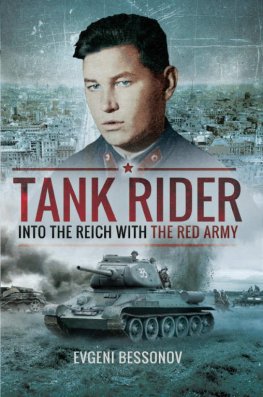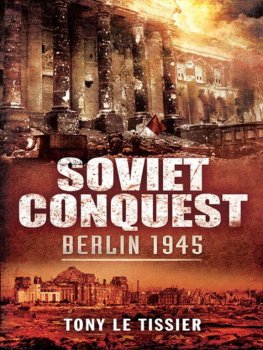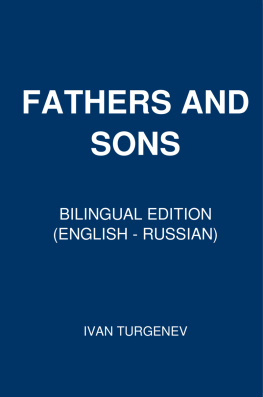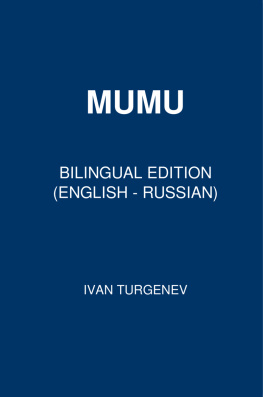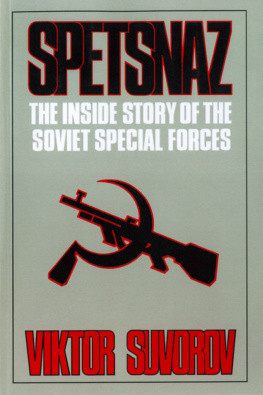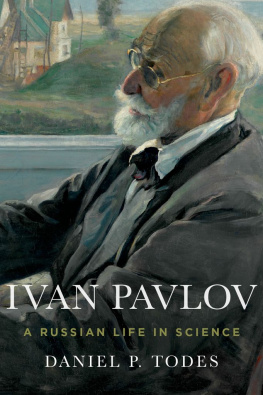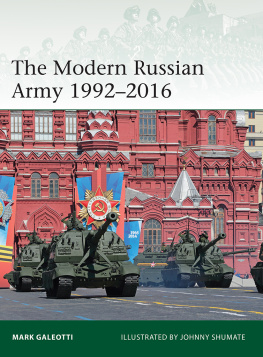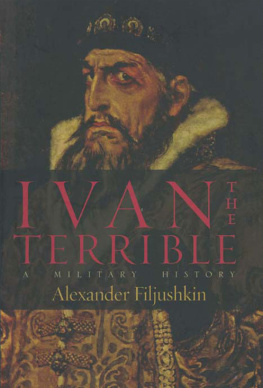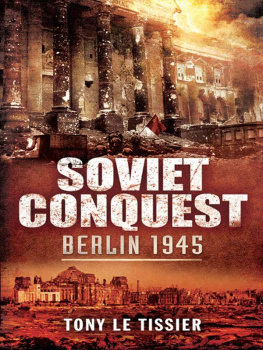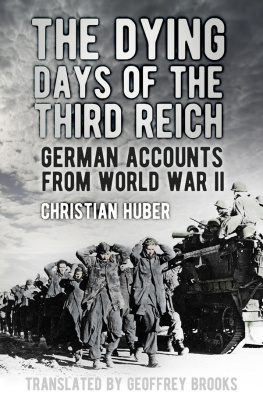This edition is published by ESCHENBURG PRESSwww.pp-publishing.com
To join our mailing list for new titles or for issues with our books eschenburgpress@gmail.com
Or on Facebook
Text originally published in 1951 under the same title.
Eschenburg Press 2017, all rights reserved. No part of this publication may be reproduced, stored in a retrieval system or transmitted by any means, electrical, mechanical or otherwise without the written permission of the copyright holder.
Publishers Note
Although in most cases we have retained the Authors original spelling and grammar to authentically reproduce the work of the Author and the original intent of such material, some additional notes and clarifications have been added for the modern readers benefit.
We have also made every effort to include all maps and illustrations of the original edition the limitations of formatting do not allow of including larger maps, we will upload as many of these maps as possible.
SOVIET STAFF OFFICER
BY
IVAN NIKITITCH KRYLOV
Translated by Edward Fitzgerald
Chapter One STRATEGIC CONFERENCE IN THE KREMLIN
THE spring of 1940 in Moscow was magnificent. The few straggly bushes along the cracked and ancient walls of the Kremlin flowered as I had never known them to flower before. Growing from a soil hardened by the frost and watered by the snow these Russian bushes have a somewhat acrid and penetrating smell. It always reminds me of the time when I was seconded to our military attach in Paris, General Krantz-Ventzov. His wife was very fond of a perfume by Caron known as Narcisse noir, which had a strangely similar odour.
Walking across the courtyard of the Kremlin on my way to see Marshal Voroshilov it occurred to me that the house of Caron did not exist at the time of the Napoleonic invasion of 1812, otherwise the Corsican, whose fugitive shade still haunted these walls, might have been reminded of that perfume of his own capital before disappearing in the mists of the Beresina and the smoke of Waterloo.
My thoughts turned to Marshal Voroshilov, who had summoned me to the Kremlin to hear my views on the battle which had just opened up on the Dutch, German and Belgian frontiers. Several other officers of the General Staff who had made a special study of Franco-German problems had also been summoned with me; Colonel Vorobiev and Captain Tulpanov, close collaborators of General Smirnov, the head of Department III of the General Staff; and Captain Muraviev and Commandant Pashkov, officers of Department IV, were to join us at the end of the conference. They were engaged at the plenary session of the Presidium of the Supreme Council at which, as technical advisers, they were providing details of the state of Frances military preparations.
I found Marshal Voroshilov smiling and cheerful. He was going grey at the temples and his eyes always reminded me of a stoat closing in for the kill. Marshal Shaposhnikov, the Chief of the General Staff, was with him. Generals Smirnov, Pavlov, Kurenko and Mirsky, a number of other officers whom I didnt know, and a civilian whom I recognized as our Permanent Secretary at the Foreign Office, Sobolev, an intimate friend of Voroshilov, were also present. We just had time to swallow a few ham sandwiches and then Voroshilov, who had never stopped smoking, addressed us:
Comrades, the war is now entering into a decisive phase. As President of the Supreme War Council I have summoned Comrade Sobolev to inform us about the political situation. Comrade Shaposhnikov will speak about the strategic situation.
I knew Sobolev well. He had been secretary to our Embassy at Paris and our representative at the League of Nations. He had the reputation of being one of our most skilled diplomats. In fact, he was a sort of minence grise to the President of the Council and our Foreign Secretary Molotov. Caustic and brilliant, erudite, adaptable and discerning, he towered above all those new ambassadors recruited by Molotov heaven knows where through the mediation of his old secretary at the Central Committee of the Party, Poskrebichev. He and Molotov understood each other, and when there were important decisions to be taken or conferences of the General Staff or of the Supreme War Council to be attended, Sobolev almost always represented him.
Sobolev opened his battered leather case and began at once:
The French Premier Paul Reynaud has got into touch with our Charg dAffaires in Paris through an English journalist attached to his office. He proposes to send a new French Ambassador to Moscow at once, Alexis Lger, to open up negotiations of the utmost importance. We have replied that as Alexis Lger is not very well-known to us we should prefer to see Pierre Cot, a reliable friend of the Soviet Union, at such a post. Paul Reynaud has already agreed in principle to our suggestion...
Colonel Vorobiev interrupted:
Paul Reynaud is nothing but a flunkey of London. What is the political sense of such a proposal? Who is the English journalist referred to?
The English journalist is a certain Geoffrey Fraser. He was expelled from Berlin by the Gestapo at the beginning of the Hitler regime after having been arrested at the direct orders of Count Helldorf, Nazi Police President of Berlin. The political sense of Reynauds proposal is simple. Reynaud understands perfectly well, of course, that we are bound by our agreement of August 1939 and that there is no question of denouncing it at the moment. The Soviet-German Agreement stands. At the same time he doesnt want Germany to feel herself completely free in the east so that she could hurl herself on France with the whole weight of her army. If Pierre Cot were sent to us as Ambassador Hitler would be obliged to increase the number of German divisions stationed on our frontier.
How many German divisions are there on our frontier at the moment? Voroshilov asked Shaposhnikov.
Seventeen, but according to our information five of them are preparing to leave for the west...I have given orders to begin preparations for our summer manuvres and to make a start with the building of 89 air fields. There will be 23 in Estonia, 34 in Latvia, and 22 in Lithuania. The German General Staff will be obliged to take that into account...
Sobolev began again:
We have been informed in Paris that, come what may, the negotiations between Pierre Cot and Molotov must succeed in holding between 40 and 50 German divisions in the east if France is not to go down under the shock of the German attack.
Is that true? asked Voroshilov. Dont forget that the Belgian and Dutch divisions must be added to the French.
He turned to me:
What do you think, Captain?
The Belgian and Dutch armies will be crushed on their own soil, I replied. The terrain is too restricted to allow of their being withdrawn into France in order to save them for a decisive battle somewhere along the Marne as was the case in 1914. Politically and psychologically a favourable retreat is impossible. The Dutch and Belgians are passive combatants. They will fight only to defend their own territory. They will ask the French for assistance...The state of the French army, both its material and its effectives, is such that we shall have to pin down at least half the German army in the east if the French are to have a chance of holding out against a lightning infiltration of the Wehrmacht ...


